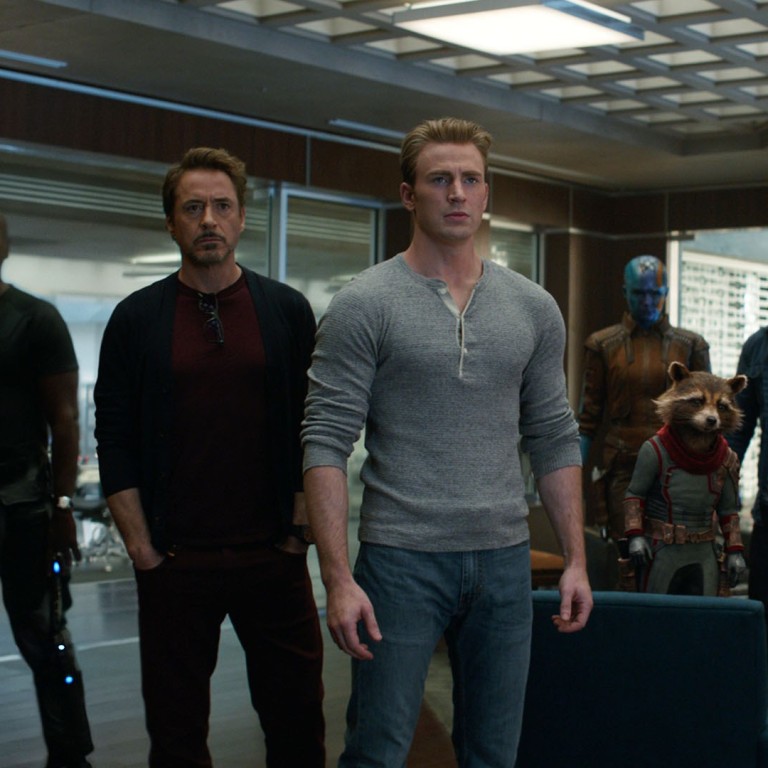
Is the trade war winter coming for American shows and actors in China?
- US-themed productions are disappearing from Chinese TV schedules and industry insiders say projects are falling through as the two countries tussle over tariffs
While the rest of the world tuned in to watch the final episode of the hit US drama Game of Thrones this week, fans in China were left disappointed.
Tencent Video, the exclusive distributor for the show on the Chinese mainland, said the finale was not available because of “media transmission issues”. Four days later, the episode had still not been released.
At the same time, various American actors said they began hearing from casting directors and agents in China that there was an “unofficial ban” on hiring Americans.
One American said he was suddenly dropped from three television roles in just a few days, including one show due to be shot in the United States.
“I’d been informed by several different agents that casting productions have been told, under no uncertain terms, not to use American actors,” the actor said.
“This has been on my only occupation, my only profession here in China for the last seven years ... just all of a sudden, gone – at least for now.”
Industry insiders say that escalating trade turmoil with the United States appears to be rippling out into the entertainment industry as projects fall through and US-related shows face unexpected delays in scheduled releases.
How Trump’s tweets outgunned China’s heavy media weapons
Another sudden absentee from Chinese TV schedules in the last week has been the debut of the heavily promoted family drama Over the Sea I Come to You, which tells the story of a Chinese father who travels to the US to take his son to school.
It was supposed to air on provincial television networks and major Chinese streaming sites last Sunday night, but two days before the broadcast date, the show’s official social media accounts went silent. Sichuan Radio and Television said the show had been “rescheduled for some reasons”, but did not elaborate.
Meanwhile, CCTV 6, the film channel of China’s state broadcaster, has filled prime time slots with hours of nationalistic movies, including anti-American Korean war staples such as Heroic Sons and Daughters and Battle on Shangganling Mountain.
Matt William Knowles, an American known for roles in various Chinese TV shows and movies, said two of his projects in China had been affected over the past few days.
In one case, negotiations for a project stopped while collaborators and consultants on another related to the US lost “confidence that the project is going to move forward”.
“It’s a sensitive time,” Knowles said. “Even if they’re not saying that we’re going put any sort of ban on Americans, people are scared enough that it kind of affects things, that the repercussions are widespread.
“The majority of the stuff that I do has to do with China, so it’s a frightening thing.”
The actor said his manager in China expressed explicit concerns that specific projects related to the United States might fall through, but added that he felt the lost jobs were because of widespread fears in the industry rather than a central directive to block Americans.
The shifts come after a serious escalation in the trade war, with threats of new tariffs scuttling hopes of a resolution to the year-long conflict.
China’s market is highly coveted by Hollywood producers and is on track to surpass the US to become the world’s biggest movie market.
The power of Chinese film-goers was clear from the recent American hit Avengers: Endgame, which became the highest-grossing foreign film of all time in mainland China, bringing in US$608 million since its release date on April 24. Those ticket sales represented roughly half of the movie’s foreign earnings.
The Chinese market can also save some productions that flop domestically. The 2016 American fantasy film Warcraft took just US$47 million in the US – but China accounted for half of its US$433 million worldwide ticket sales.
But some Chinese film successes also rely on US support. The Chinese sci-fi blockbuster The Wandering Earth used visual effects from companies such as Base FX, founded by American director and writer Christopher Bremble in partnership with a Beijing visual effects training school. In addition, the movie was picked up for global streaming by the US media company Netflix.
Elizabeth Dell, producer and chairwoman of the International Committee of the Producers Guild of America, said she felt there had been a “cooling in activity and project interest” since the start of the trade war, with less momentum for both new and existing projects.
“Energy is being refocused to domestic projects, both for Hollywood and for China,” Dell said.
“I am most concerned about these issues for companies that have staked their business on working between the US and China. I think we will see many of these companies falter or fail as the trade war continues. I hope that we can resolve the conflicts soon, but that hope is tentative.”
That sentiment was reflected across the Pacific, where one person working in the Chinese entertainment industry said producers had been spooked by the trade war and “were just being cautious”.
“A lot of money is on the line in the relationship between the United States and China,” the insider said.
Producers and actors in China were already treading more warily after Fan Bingbing, China’s highest-paid actress, was embroiled in a tax evasion scandal.
Many professionals left the industry after the actress disappeared for three months and was fined US$129 million for evading taxes, industry insiders said.
US actors caught in the squeeze said they would refocus their efforts on projects in the United States.
Matthew Ruggles, who acted in China for several years and was a dialogue coach for star Jackie Chan, said there were concerns that American actors and key production people would be banned from working in China.
“Between the trade war and the tax situation, it just all upended the industry. It’s kind of chaotic, I might just have to keep my eyes focused at home for the time being,” Ruggles said.
“It’s just little people who are the ones who pay the price … A lot of livelihoods are going to be lost, and a lot of people may not come back to the industry.”
Chinese film industry pays US$1.7 billion in back taxes after Fan Bingbing scandal
The US embassy in Beijing declined to comment and China’s foreign ministry said it was not aware of the situation. The National Radio and Television Administration did not respond to queries.
For Los Angeles-based Knowles, who left China in 2014 after several years, the greatest loss would be in relations between China and the US.
“Culture and film and storytelling is so, so powerful, and it’s such a great way to bridge the gap,” he said. “If things are blocked, we’ll lose a voice to influence things for good.”
Knowles said he still returned often to China but had sensed several years ago that restrictions might tighten there.
“That’s always been the risk of working with China,” he said. “There’s so much opportunity but I’ve always said that at any moment, it can all be taken away. If you say the wrong thing, if you get targeted, if you raise a yellow flag, do something you shouldn’t, it can all be gone.”



